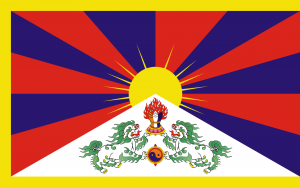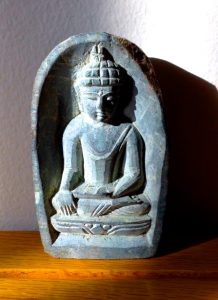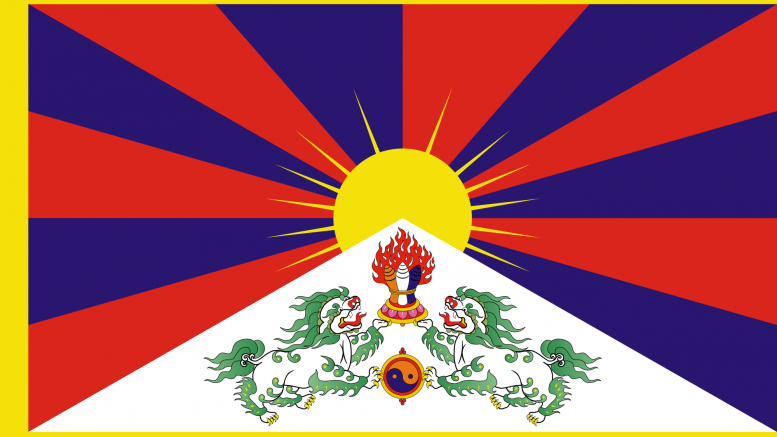
“Increasingly, we see that countries that have typically spoken out on behalf of Tibet are now shying away from doing so.”
— Sarah Sewell, special coordinator on Tibetan issues during the Obama administration.
PRI The World (3/11/19)
A Tibetan flag flutters alongside a Massachusetts one and the US flag outside Boston City Hall, marking the 60 years since the Tibetan uprising in Lhasa prompted the Dalai Lama to flee his palace.
A group of Tibetans and activists gathered on a frigid Friday to hoist the flag, which will fly through March 14.
Lhadon Tethong held her 2-year-old son in her arms as the flag was raised. Like her son, Tethong was not born in Tibet.
Her father fled his homeland after the uprising, so she was born in Canada and never lived in Tibet. Tethong, director of the Tibetan Action Institute, has been an activist most of her life.
- In Tibet, Bloggers Post At Their Own Risk — [5/20/15] These are treacherous days for anyone in China who dares to publicly criticize government policy, especially when it comes to Beijing’s handling the troubled ethnic minority regions of Tibet. A Tibetan blogger named Druklo is one of the latest people to find that out the hard way. Druklo was arrested by Chinese police in a part of Qinghai province that Tibetans call Rebkong, according to a Tibetan friend who now lives in exile. The friend asked to remain anonymous out of concern that making their friendship public might put Druklo at greater risk. The day before his arrest in March, Druklo and his brother-in-law traveled to Rebkong on business, the source said. Police arrested them at their hotel the next morning. Officials released the brother-in-law after several days. But Druklo, who is better known by his pen name of Shokjang, remains in custody. … Read the Rest

(Commoner Call photo by Mark L. Taylor, 2019. Open source and free for non-derivative use with link to www.thecommonercall.org )

